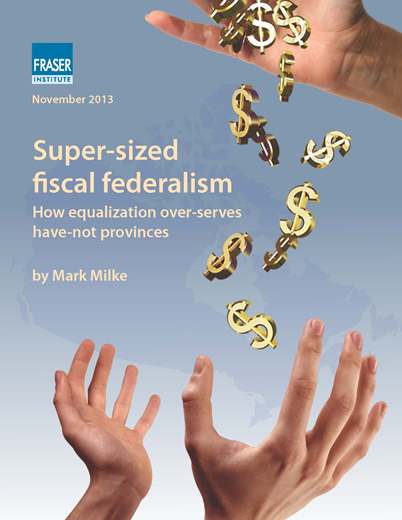Therell be no doubt that were balanced in 2015, federal Finance Minister Jim Flaherty told reporters after recently meeting with a group of private sector economists. This is among Mr. Flahertys most categorical statements to date on his plan to achieve a balanced budget in 2015-16. But in light of recent economic forecasts and potential threats to the governments revenue projections, he would be well-advised to focus on further spending restraint something he can fully control in order to deliver on his promise.
program spending
In a recent drive from Saint John to St. Andrews, New Brunswick, I marvelled at the mostly four-lane highway that connected the two points on the map and how empty it was on a Friday evening on a long weekend. I compared it with much of the TransCanada highway in British Columbia, four-laned in portions where it should be six, and often only two-laned where it should be four, as well as to the regularly packed four-lane highway between Edmonton and Calgary.
The government should fix it is a common refrain when people encounter a problem in society. Governments happily oblige because it means more votes for politicians and more work for bureaucrats. Governments themselves also undertake a number of things from encouraging Canadians to be more active, to propping up domestic industries, to trying to create jobs. But can government really deliver? Evidence suggests the answer is a resounding no.
Fiscal policy is really about taxes and spending and the federal government recently provided some hints on its plans in these areas.
In the recent Speech from the Throne, the government reaffirmed its commitment to balancing the budget by 2015-16 and providing "greater tax relief for Canadian families" after the budget is balanced. But what form this tax relief may take remains a mystery.
If there was ever a place that was the anti-Greece when it comes to public finances, it must be Alberta. Compare Alberta to many places around the world, be it European fiscal disasters, or even nearer to home, and in most decades, Alberta shines in comparison.
Canadians who dont regularly track how governments spend money might be surprised to find how myths crop up about government expenditures. Exhibit A is a new report that claims Canada needs even more industrial policy, academic lingo for subsidies to business, and this as if governments had not already long practised such policy, and at a considerable cost to taxpayers.
The BC Liberals and particularly Premier Christy Clark deserve the praise theyre receiving for their surprise electoral victory. After all, the Liberals reversed a double-digit deficit in the polls and ended up securing a majority government. This moment of jubilation for the Liberals and their supporters will be short-lived however, as the reality of governing in difficult times takes hold. The litmus test for the success of this government, which they themselves established, is the success of the economy and in particular, jobs.

